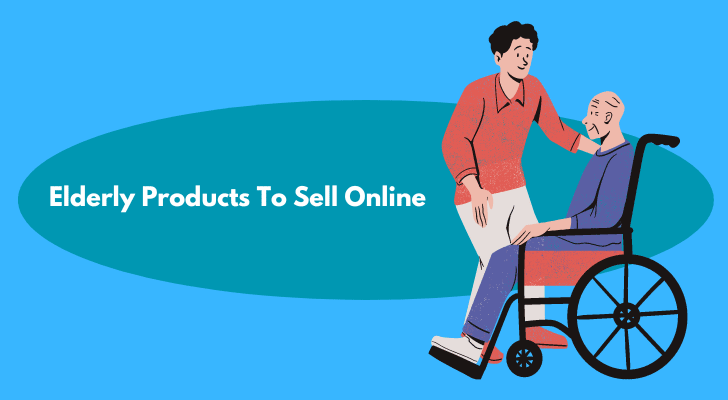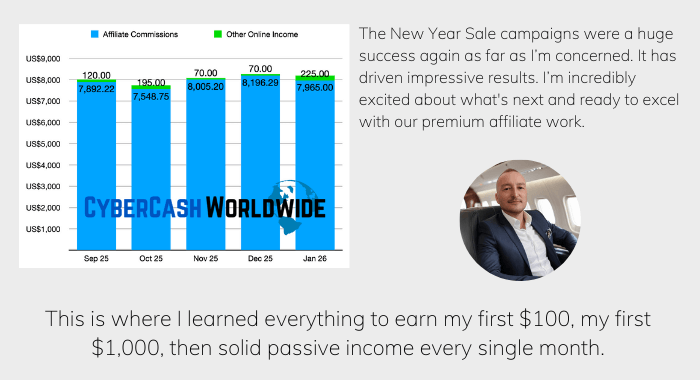Direct sales for the older crowd seem like a gold mine on paper. Every person gets older, so the market grows every single day without fail. You will soon notice that moving these items from a private web store feels like pulling teeth. Many digital shop owners fail because they overlook how seniors actually shop on the internet.
Older shoppers prefer familiarity and safety over a flashy new brand name they found on a social media ad. Trust is the currency that matters most when you try to reach this demographic. Amazon has already won that trust over decades of service. You will find more success by sending people to a platform they already use instead of building your own from scratch.
People in this age bracket often worry about scams and complex checkout pages. You should focus on making their lives easier rather than just making a sale. Success comes from knowing which items solve real problems without causing new ones.
The Silver Economy: A Strategic Market Overview
The global population ages at a record rate. Data from world health organizations shows that the number of people over 60 will double by 2050. This creates a massive, underserved market for online sellers.
The elderly demographic prioritizes utility and safety over temporary trends. They look for items that solve a direct problem or simplify a task. When you sell in this space, you fill a gap in a market that remains largely ignored by mainstream e-commerce.
Why these items work:
High Retention: Seniors are loyal customers once they find a reliable source.
Direct Utility: These items fix a frustration, making the sale easier.
Growing Demand: The buyer pool expands every year.
The list below focuses on high-utility items that meet these standards. Use this data to select products that solve real problems for your customers.

The Struggle Of Independent Shops
Seniors often hesitate to enter credit card details into a site they never saw before. High-pressure sales tactics usually drive them away instead of closing the deal. You will find that security remains their top priority every time they open a laptop. Small businesses often lack the visible security badges or brand recognition to put these minds at ease. Your store looks like a risk to someone who grew up in a world of physical storefronts and handshakes.
Checkout processes frequently contain too many steps or tiny text that causes frustration. Older eyes struggle with low-contrast buttons or hidden navigation menus that younger designers love. You need to realize that a single error message will cause a senior to close the tab forever. They do not have the patience to troubleshoot a broken cart or a weird pop-up. Most private sites simply do not spend enough money on user testing for this particular group.
Shipping costs for heavy items like mobility chairs or bath lifts destroy small margins. You will struggle to compete with free shipping when your warehouse is across the country. Returns also become a nightmare when the customer cannot easily repackage a large box. Most people would rather buy from a giant corporation that handles the logistics without a fuss. You spend more time on customer support than on growing the business when you go solo.
Prioritize sites with huge brand names because seniors feel safer there.
Avoid complex forms since they lead to abandoned shopping carts quickly.
Select items that have clear return policies to reduce buyer anxiety.
Check the text size on your pages to ensure everyone reads clearly.
Look for platforms that offer one-click buying to skip the checkout stress.
Why Amazon Associates Is A Better Bet
Amazon dominates the market because people already have their addresses and cards saved. You benefit from the massive trust debt that the company built over the last thirty years. Most seniors already have an account or a family member who helps them order. You do not have to explain how the site works or why it is safe. Your job stays simple because you only act as a helpful pointer.
Prime shipping changes the math for heavy medical supplies or large furniture. You avoid the headache of calculating freight or dealing with damaged boxes in your own garage. The massive infrastructure allows for deliveries that small shops will never match. People value the speed even if they do not need the item immediately. You get to ride the coattails of a logistics giant without paying for the trucks.
Conversion rates stay high because the platform uses every trick to finalize the order. You will see more sales from a simple link than from a thousand-dollar ad campaign for a private site. Related products often appear in the sidebar to increase the total order value. You earn a commission on every single item in the cart, even if you did not link to it. The system works in your favor by maximizing the spend of every visitor.
Use the reputation of a giant retailer to bypass the fear of online scams.
Let the existing checkout system handle the security concerns of your visitors.
Focus on products with thousands of reviews to provide social proof instantly.
Take advantage of the cookie window that tracks every purchase made.
Promote items that qualify for free shipping to remove a major hurdle.
Adaptive Kitchen Utensils For Hand Comfort
Arthritis often makes simple tasks feel like a heavy chore. You will notice that many seniors search for ways to regain their independence in the kitchen. Traditional jar openers or small buttons often cause pain or frustration. You are able to suggest electric versions that do the hard work automatically. Such items sell well because they solve a physical pain point immediately.
A good affiliate strategy focuses on ergonomic designs that fit comfortably in a tired grip. You should look for pens with thick barrels or spoons with weighted handles. Such items help people maintain their dignity while performing basic daily routines. You will find a steady stream of buyers who value function over aesthetics. Every small victory in the home counts as a huge win for the customer.
Manufacturers often fail to market these tools in a way that feels natural. You succeed by explaining how the product removes a specific barrier in the house. Your role involves showing how a simple hook or a button aid changes a morning routine. People rarely browse for these items until they experience a moment of sudden need. You are the bridge between a problem and a practical solution found on a trusted site.
Promote electric jar openers that require zero hand strength to operate.
Suggest weighted silverware to help those with hand tremors eat more easily.
Look for rocker knives that allow users to cut food with a simple motion.
Focus on wide - grip vegetable peelers that reduce strain on the thumb joint.
Recommend automatic can openers to prevent sharp edges and sore wrists.

Bathroom Safety Bars and Seats
Safety in the shower is a major worry for anyone with limited mobility. You will find that fall prevention is a top priority for families caring for older relatives. Sturdy grab bars and non - slip mats are required items for a safe home environment. Many people look for temporary solutions that do not require drilling into the tile. You are able to point them toward high - quality suction or tension - based products.
Shower chairs provide a sense of security that a wet floor cannot offer. You should emphasize the stability and weight capacity of these items to build buyer confidence. Most customers want something that feels solid but stays light enough to move around. Your descriptions should highlight how the product fits into a standard tub without taking up too much space. People appreciate knowing the exact dimensions before they commit to a purchase.
Raised toilet seats help those who have difficulty standing up from low positions. You will see high demand for models that include padded armrests for extra support. Such modifications allow seniors to stay in their homes longer without major renovations. You are helping them maintain their privacy and independence through your recommendations. Success in this niche depends on being clear about the weight limits and installation steps.
Showcase grab bars with color - coded indicators to ensure a secure suction seal.
Recommend shower benches with drainage holes to prevent water buildup and slips.
Highlight raised toilet seats that bolt directly to the existing porcelain for safety.
Suggest non - slip bath mats with extra - strong suction cups for the tub floor.
Focus on handheld shower heads that allow people to wash while sitting down.
Mobility Aids For Outdoor Use
Walking through the park or a grocery store requires reliable support. You will find that many seniors prefer lightweight rollators over traditional heavy walkers. These (WAIT - "These" start - FIX: Modern) Modern models often come with built - in seats and storage baskets for convenience. You should focus on how easy the item is to fold and place into a car trunk. Portability is a massive selling point for active seniors who still want to travel.
Canes have evolved far beyond the simple wooden stick. You are able to promote quad - canes that stand up on their own for better stability. Such items prevent the user from having to bend down to pick up a fallen cane. You should also look for models with built - in LED lights for walking at night. Small features like these make a big difference in the daily life of the user.
Wheelchairs and transport chairs are necessary for longer excursions or doctor visits. You will find that customers value padded seats and adjustable footrests for long - term comfort. Transport chairs are particularly popular because they are lighter than standard wheelchairs. You should explain the difference between a self - propelled model and one that requires a pusher. Being helpful with these details builds your authority as a trusted recommender.
Focus on lightweight folding rollators that fit into small vehicle trunks easily.
Promote self - standing canes that reduce the risk of trips and falls.
Suggest walker bags that allow users to carry phones and water bottles safely.
Recommend portable ramps for homes with small steps at the entry way.
Look for all - terrain walkers with large wheels for navigating gravel or grass.
Vision Enhancements And Magnifiers
Reading the fine print on a medicine bottle is a frequent struggle. You will notice that magnifying lamps are highly popular for both reading and hobbies like sewing. Such products need to offer clear glass and bright, flicker - free lighting. You should explain how the lens reduces eye strain during long periods of use. Many seniors will buy multiple magnifiers for different rooms in their house.
Electronic page magnifiers are the modern solution for those with severe vision loss. You are able to show how these devices enlarge text on a screen for easier viewing. Some models even read the words aloud to the user for better comprehension. You should highlight the portability of handheld digital magnifiers for trips to the grocery store. People value the ability to see price tags and ingredients without asking for help.
Large print items are a simple yet effective way to help those with declining sight. You should look for clocks with massive numbers or keyboards with high - contrast keys. Such products make technology less intimidating for someone who struggles to see small icons. You will find a loyal audience by focusing on these practical daily helpers. Your goal is to make the world clearer for them through your product choices.
Promote magnifying floor lamps that provide hands - free light for reading books.
Suggest pocket - sized digital magnifiers for reading menus in dark restaurants.
Recommend high - contrast keyboards with yellow keys and large black letters.
Look for talking watches that announce the time at the press of a button.
Focus on jumbo - sized playing cards for seniors who enjoy social games.

Seniors' Unexpected Connections
Hearing Support And Amplifiers
Conversations in crowded rooms often become a source of stress for the hard of hearing. You will find that personal sound amplification products serve as a great entry point. These (WAIT - FIX: Such) Such devices are more affordable than medical hearing aids and work well for mild issues. You should explain that these tools help people stay connected with their family and friends. Clear communication is a major factor in maintaining mental health as people age.
Television listeners allow seniors to hear their favorite shows without blasting the volume. You are able to suggest wireless headphones that connect directly to the TV set. Such a setup prevents arguments over noise levels with other people in the house. You should look for models that offer clear dialogue enhancement features. This (WAIT - FIX: The) The technology ensures that voices stay crisp even during loud action scenes.
Amplified telephones are a necessary tool for those who live alone. You will see high interest in phones with extra - loud ringers and flashing visual alerts. Many models also include large buttons to help with dialing errors. You should highlight how these phones ensure that no one misses an important call from a doctor or a child. Safety and connection remain the primary drivers for these purchases.
Suggest wireless TV headphones that allow for individual volume control settings.
Promote personal sound amplifiers with noise - canceling features for busy environments.
Recommend telephone ring amplifiers that produce a loud strobe light effect.
Look for vibrating alarm clocks that sit under a pillow for heavy sleepers.
Focus on doorbells with portable receivers that flash when someone is at the gate.
Memory And Medication Alarms
Managing multiple pills a day is a complex task for many older adults. You will find that automatic pill dispensers reduce the risk of missed or double doses. Such machines use a rotating tray to provide the right meds at the exact time needed. You should emphasize the peace of mind these devices offer to worried family members. A reliable system keeps the user safe and independent in their own home.
Digital clocks that state the day and time clearly are very helpful for those with memory loss. You are able to promote "dementia clocks" that display whether it is morning or night. Such visual cues help people stay oriented to their daily schedule. You should look for models that allow for custom alarms for meal times or appointments. Simplification of the daily routine is the main benefit here.
Key finders and item trackers prevent the frustration of losing common household objects. You will see that Bluetooth trackers are popular even among the less tech - savvy crowd. You should explain how a simple app or a remote control helps find lost glasses or wallets. Such tools save time and reduce the daily stress of searching for misplaced items. Helping people keep track of their life is a great way to earn their trust.
Promote automatic pill dispensers with locking lids to prevent medication errors.
Suggest extra - large digital day clocks that help with time and date orientation.
Recommend item trackers with loud beepers for finding keys and remote controls.
Look for dry - erase boards designed for daily schedules and medication lists.
Focus on motion - activated voice reminders that play a recorded message near the door.
Simplified Home Technology
Smart home devices offer great benefits if the interface stays simple. You will find that voice - controlled assistants are perfect for seniors with limited mobility. You are able to show how a simple command turns off the lights or plays music. Many people appreciate not having to get up from a chair to adjust the thermostat. Your role is to demystify the technology and show its practical side.
Simplified tablets and computers are designed with large icons and minimal menus. You should look for devices that focus on video calls and photo sharing with family. Such tools help fight isolation by keeping the senior connected to the younger generations. You should explain that these gadgets are built to be "unbreakable" in terms of software. This (WAIT - FIX: The) The focus on ease of use makes them much less scary for a beginner.
Video doorbells provide an extra layer of security for those who move slowly to the door. You will see that many seniors feel safer seeing who is outside from their chair. You are able to suggest models that work with a simple tablet or phone interface. Such a setup prevents them from opening the door to strangers or scammers. Safety is always a high - performing angle in this market.
Recommend voice - activated smart plugs to control lamps without bending over.
Promote tablets with simplified interfaces specifically for video calling family.
Suggest video doorbells that allow seniors to speak to visitors from their bed.
Look for smart thermostats that can be adjusted via a simple voice command.
Focus on digital photo frames that allow family members to upload pictures remotely.

Therapeutic Art and Craft Supplies
Comfortable Clothing And Footwear
Dressing becomes difficult when buttons and zippers are hard to manage. You will find that magnetic closures and Velcro are much better options for seniors. Such adaptive clothing looks like normal fashion but functions with much less effort. You should highlight the soft fabrics that do not irritate sensitive skin. Comfort is just as noteworthy as the ease of putting the garment on.
Shoes with wide openings and easy fasteners prevent falls and foot pain. You are able to promote slippers with non - slip soles for safe walking around the house. Many seniors suffer from swelling, so adjustable straps are a necessary feature. You should look for footwear that provides excellent arch support for tired feet. A good pair of shoes improves the quality of every step the user takes.
Compression socks help with circulation and reduce the risk of blood clots. You will see that many doctors recommend these for daily wear. You should focus on models that are easier to pull on than traditional medical stockings. Many people struggle with the tight fabric, so "easy - on" versions sell very well. Your advice helps them follow medical orders with much less struggle.
Promote shirts with hidden magnetic buttons for people with limited finger mobility.
Suggest slip - on sneakers with sturdy heels that do not require bending down.
Recommend adjustable slippers that accommodate swelling throughout the day.
Look for compression sock aids that help pull on tight hosiery without strain.
Focus on seamless socks that prevent irritation for those with diabetes.
Lift Chairs And Bed Rails
Getting in and out of a chair is a major physical effort for some. You will find that power lift recliners are a popular high - ticket item for affiliates. Such chairs use a motor to gently tilt the user forward until they are standing. You should emphasize the comfort of the padding and the ease of the remote control. A lift chair often becomes the favorite spot in the house for many seniors.
Bed rails provide a steady handhold for sitting up or lying down safely. You are able to suggest models that slide under the mattress without the need for tools. Such rails also prevent the user from rolling out of bed during the night. You should look for versions that include a storage pouch for phones or books. This (WAIT - FIX: The) The added utility makes the product even more attractive to the buyer.
Overbed tables allow people to eat or use a laptop while staying in a comfortable position. You will see that height - adjustable models are the most sought after. You should explain how these tables provide a stable surface that traditional trays lack. Such items are required for those who spend a lot of time in a hospital bed at home. Practicality and stability are the two most serious features to highlight.
Promote power lift recliners with heat and massage functions for extra comfort.
Suggest portable bed rails that can be moved between rooms or taken on trips.
Recommend adjustable overbed tables with wheels for easy movement.
Look for chair exit alarms that notify caregivers when a person tries to stand.
Focus on swivel seat cushions that help people get out of cars more easily.
Low Impact Fitness Tools
Staying active is the key to longevity and better health. You will find that many seniors look for exercise gear that does not hurt their joints. Recumbent pedalers allow for a cardio workout while sitting in a standard chair. You are able to show how these machines keep the legs moving without the risk of a fall. Consistency in movement is more valuable than high - intensity training for this group.
Resistance bands offer a safe way to build strength without heavy weights. You should look for kits that include door anchors and soft handles for a better grip. Such tools are easy to store and use in any room of the house. You should explain that muscle mass is necessary for maintaining balance and preventing injuries. Your recommendations help them stay strong and capable in their daily tasks.
Balance boards and foam pads help improve stability and coordination. You will see that many physical therapists recommend these for home use. You should focus on models that offer a non - slip surface for safety. You are able to suggest simple routines that people do while holding onto a counter. Success comes from making fitness feel achievable and safe for everyone.
Promote under - desk pedal exercisers for low - impact leg movement while watching TV.
Suggest extra - thick yoga mats that provide more cushioning for sensitive knees.
Recommend light dumbbells with soft neoprene coatings for a more secure grip.
Look for balance discs that help strengthen the core while sitting in a chair.
Focus on stretch straps that help people improve flexibility without overextending.
Gardening With Ergonomic Tools
Working in the garden is a beloved hobby that many refuse to give up. You will find that ergonomic trowels and shears reduce the strain on the wrist. Such tools often feature curved handles that keep the hand in a neutral position. You should highlight how these designs allow for longer periods of activity without pain. A happy gardener is a repeat customer for high - quality outdoor gear.
Garden kneelers provide a soft place for the knees and a sturdy frame for standing up. You are able to promote reversible models that turn into a bench for resting. Such items are a "must - have" for anyone who finds it hard to get down to the ground. You should look for versions with side pockets for keeping tools within reach. Efficiency in the garden leads to a more enjoyable experience overall.
Raised garden beds bring the plants up to a comfortable waist height. You will see that these are popular for preventing back pain and knee strain. You are able to suggest modular kits that are easy to assemble in a backyard or on a patio. Such setups allow seniors to continue growing vegetables and flowers without the heavy digging. Your advice helps them keep their green thumb active for years to come.
Promote long - handled garden tools that eliminate the need for bending or stooping.
Suggest garden kneelers with sturdy side rails to assist with standing up.
Recommend lightweight garden hoses that are easy to pull and coil after use.
Look for ergonomic pruning shears with a ratcheting mechanism for easier cutting.
Focus on rolling garden seats that allow users to move along the rows while sitting.

Sleep Hygiene
Sleep Quality Products For Restful Nights
Rest is the foundation of health, but it becomes harder to achieve with age. You will find that wedge pillows help with issues like acid reflux or breathing difficulties. Such pillows provide a gentle incline that keeps the upper body elevated. You should explain how a better sleeping position leads to more energy during the day. Comfort in the bedroom is a serious investment for most shoppers.
Heated mattress pads and blankets provide warmth for those with poor circulation. You are able to suggest models with automatic shut - off timers for safety. Such products help relax sore muscles and make it easier to fall asleep on cold nights. You should look for controllers with large, easy - to - read displays. Many seniors value the ability to set the exact temperature they need.
White noise machines or sound therapy devices help block out distracting noises. You will see that these are helpful for those who are light sleepers. You should focus on models that offer simple buttons rather than complex digital menus. Such tools create a peaceful environment that promotes deeper and longer sleep. Your goal is to help them wake up feeling refreshed and ready for the day.
Promote memory foam wedge pillows for better neck and back support in bed.
Suggest weighted blankets that provide a sense of security and reduce anxiety.
Recommend white noise machines with natural sounds like rain or ocean waves.
Look for bed step stools with high handrails for safely entering tall beds.
Focus on cooling pillow covers for those who suffer from night sweats.
Incontinence And Hygiene Care
Maintaining personal hygiene is a sensitive but necessary topic for many. You will find that high - quality absorbent products provide the confidence needed to leave the house. Such items should be discreet and effective at controlling odors. You should explain that modern designs are much thinner and more comfortable than older versions. Helping people maintain their dignity is a core part of this niche.
Bed pads and waterproof protectors save the mattress from accidental leaks. You are able to suggest washable or disposable versions depending on the customer's needs. Such products reduce the stress and workload for both the user and their caregiver. You should look for pads that stay in place and do not bunch up during the night. Reliability is the most serious factor when choosing these items.
Long - handled sponges and lotion applicators help with hard - to - reach areas. You will see that these simple tools make bathing a much more independent process. You are able to promote kits that include various attachments for different tasks. Such items prevent the need for dangerous stretching or twisting in a slippery shower. Your suggestions make the daily routine safer and more manageable.
Promote discreet adult pull - ups that look and feel like regular underwear.
Suggest washable bed pads with a soft top layer for maximum comfort.
Recommend long - handled lotion applicators for reaching the back without help.
Look for bidet attachments that improve hygiene and reduce the need for toilet paper.
Focus on portable urinals for use during long car trips or in emergency situations.
Selling items to the older demographic is a rewarding path if you use the right platform. You have seen how the trust and logistics of a giant like Amazon make the process much smoother. Success comes from identifying the real physical hurdles that seniors face every day. You do not need a fancy store to make an impact in this growing market.
Focus on being a helpful guide who points people toward practical and safe solutions. The demand for these products will only increase as the population ages. You are able to build a solid business by simply caring about the needs of your visitors.
Promoting the right tools allows people to live with more freedom and less pain. Your role as an affiliate is to bridge the gap between a problem and a proven product. Let the big retailers handle the hard parts while you focus on providing value.


Good article. But I can honestly say, it’s a tough market. Elderly consumers aren’t as likely to shop online, so you’re really targeting caregivers. I struggled to break through.
Thank you for your comment. So true.
If you’re thinking about selling elderly products… make sure you know what people actually need. It’s not just about selling.
Thank you for your comment, so what do you think they need? Share your opinion with us!
Interesting. Selling elderly products online can be profitable for sure. But the market is really, really competitive. You have to find a unique angle or product to stand out from the rest.
Thanks for your comment Sharmainne, that's what we said. What do you think is a "unique angle"? Share your opinion with us!
Old people waste money on so many gadget only to mess up like break it or die and people still keep spending so much money lol, affiliate’s heaven is here.
What? Well, thanks for your comment.
You can make money in this niche, but it’s all about finding the right products.
I’ve done well with incontinence supplies, but other things didn’t sell at all.
Thank you for your guidance. This niche is worth exploring, but you have to be strategic. I started selling ergonomic furniture, and it’s been great, but not all elderly products sell well.
Hi Jun, thanks for your comment. How did you sell ergonomic furniture, through online? Share with us.
I tried selling elderly products online, and it was a complete flop. I thought the demand would be higher, but it’s really tough to reach this audience. Since then, I have found a lot of success selling medical alert systems. There’s definitely money to be made, but you need to focus on quality products that really benefit the elderly.
Thanks for sharing your experience Yan.
Thanks for your article. I agree most of the things that you say. There are a lot of products that you can sell, more than you think there are. I started selling elderly care products last year, and it’s been a great niche. There’s a lot of demand, but you need to research the right products to sell.
Hi Syed, thanks for your comment. So what do you think are the right products? Share your opinion with us.
I have a great article ready to publish about elderly products to sell online. Can you publish it.
Thanks for your comment but why don’t you publish it yourself? We can publish it for you, not on this site though.
Thanks for your reply. Good content is expensive and hard to come by and I’m offering it to you for free. I am a freelance content writer and looking for an opportunity to prove myself. So I can’t pay you right now, what you can do is nofollow the link. Looking forward to hearing from you.
What?
Pls someone help me how to target senior people.. i can get some of the things on the list no problem i just need to find people to sell to.
This is a great list of niche products that I was looking for…!
Thank you. I have been looking to sell useful items that senior people would appreciate. Stairlift etc big items may be difficult to organize but there are some smaller items that I can start affiliate marketing with.
Thank you.
It’s definitely possible to make money selling elderly products, but it depends on how well you know your market. Not everything is going to sell like hotcakes.
Warning! I just wanted to share my experience related to this post. I saw an online ad for a discounted stair lift, I thought it was perfect for my mom. We emailed each other, a couple of men seemed very helpful, but they pressured us to pay a big deposit upfront, and when I asked about sending someone to measure for an installation, they kept dodging the question. I felt suspicious, googled and discovered there were a lot of scams out there targeting seniors with expensive stair lifts. Since then we found a reputable local company that came to the house, gave us a proper quote, and installed a stair lift for mom. Not cheap but I think the fair price we paid was fair. Be careful about online offers, if it sounds too good to be true, it probably is!
Thanks for the warning! As a seller, it’s important to be absolutely transparent about your ID and the reputation.
Elderly products are so niche that they don’t sell. People who usually buy are so specific, and if you want to promote multiple products they don’t like it unless you have real extensive knowledge on each and every product.